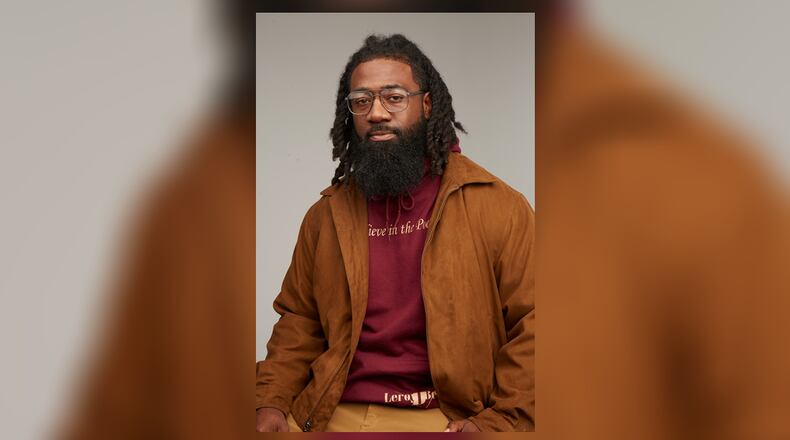I reclaimed my time in a quiet park near my Airbnb, away from the bustling streets of Paris. Sitting on a bench in the midday sun, surrounded by the city’s vibrant life and the sounds of jazz, I surrendered to the thoughts insisting to be written down.
In my stillness, I explored ideas like home, love, faith, culture, identity, fellowship among Black artists, and Afrofuturism.
What stands out in the stories of Black artists relocating to Paris is their pursuit of a life and future that was proven to be unavailable to them in America by the treatment of Black bodies. They acted on faith in their vision and the impact it would have on future Black artists to find the same freedom.
In his essay “Mass Culture and the Creative Artist,” Baldwin criticizes American culture’s tendency to trivialize complex issues. His journey contrasts this with the welcoming cultural climate he found in France during his last 17 years, where artists were valued and space was made for their contributions – and their Blackness.
In Parisian culture, each day offered opportunities for creative and artistic experiences, fully embraced by the community. Restaurants regularly featured performances, bars hosted intimate concerts and jam sessions, and a plethora of retreats, residencies, and workshops catered to artists from all backgrounds.
In Dayton, a common complaint is the perceived lack of entertainment options. Artists enrich a city’s cultural offerings, yet the financial support that is essential for them to do so is lacking. In Dayton’s past, particularly during the Funk era, artists flourished. They were propelled to national recognition by robust backing from audiences, venues, promoters, radio stations, and journalists who fostered a culture of awareness and excitement.
I’ve personally worked with and witnessed organizations such as Dayton Live, Culture Works, Dayton Metro Library, The CO, and Levitt Pavilion create space and opportunity for our local artists. Businesses like The Neon, Wholly Grounds, and Third Perk have opened their doors to collaborate with local performers and producers to create beautiful events.
However, we require increased support from arts councils and foundations through expanded fellowships, grants, and professional development initiatives. Community centers, non-profits, and schools should engage artists in budgeting discussions to ensure adequate funding for artist-led programs and performances. Organizations like Launch Dayton could offer more incubators and accelerators tailored to creative entrepreneurs. Third spaces ought to collaborate with artists, ensuring affordable access to space rather than pricing them out.
Let’s take action to truly value our artists and culture in Dayton. It’s time to recognize their importance and invest in their success by providing financial resources, infrastructure, and support systems. Let’s prioritize cultural equity, diversity, and long-term commitment to build thriving cultural ecosystems that enrich our lives and communities. By engaging with artists, integrating arts into urban planning, and promoting cultural assets effectively, we can create a more vibrant, inclusive city that celebrates creativity and diversity.
Victor was right, I had won. I gained a lifetime of experience, clarity, and peace from that nice, quiet spot I found in Paris. The way of the starving artist we have been conditioned to is not the path to the success we strive for. It’s up to us to create the environment that creativity needs to thrive: time, space, freedom, and openness.
Dayton native Leroy Bean, 10 years into his artist career, uses surrealism and philosophy to create perspective-bending spoken word poetry while creating space for Black artists with his team through Broken English: 101, a monthly live entertainment production.
Afrofuturism and Dayton, Ohio

Krista Franklin: "Transatlantic Turntable-ism." Collage on canvas. 2005.
"Afrofuturism demands society look beyond the present into worlds yet explored, where the fullness of Blackness blooms without limitation." - Read Russell Florence's story about Dayton's many connections to Afrofuturism. Throughout February, Ideas & Voices will feature artists and others to discuss our region’s contributions to Afrofuturism. You are invited to follow along.
|
Rickey Vincent: Dayton musicians did not engage in Black music traditions — they broke them |
|
Countess Winfrey: I challenge myself to create a new world, rather than shine light on the world we already live in |
|
Shon Curtis: Afrofuturism and the rebirth of artistic identity |
|
Leroy Bean: Valuing Black creativity: Addressing systemic bias in the arts |
|
Rodney Veal: ‘We are speaking loudly and with pride from our African roots’ |
|
Mariah Johnson: Libraries and artists in our community are the agents of change |
About the Author



